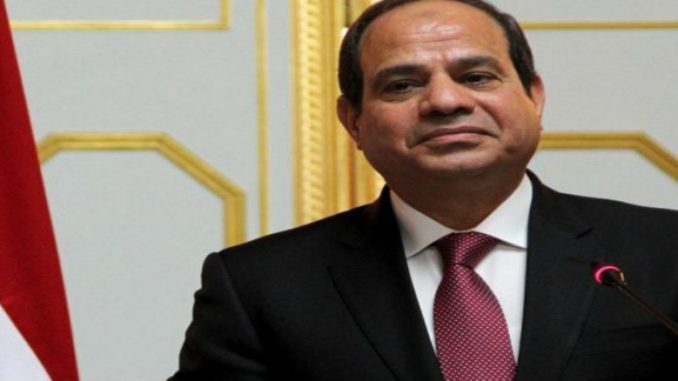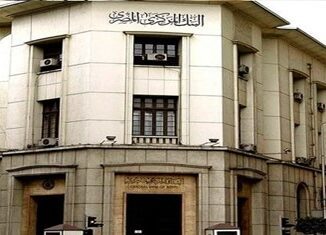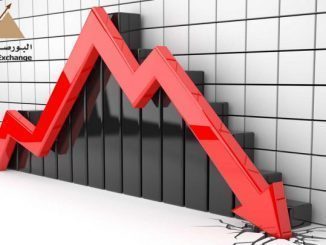
Abdel Fattah al-Sisi has sold his country as an investment destination with the IMF’s help—but the living standards of ordinary Egyptians are plummeting as elites line their pockets.
One year after Egypt repositioned itself as a “global investment destination,” financial commentators have taken to calling it the world’s hottest emerging market. Investors are flooding into the country in the hope of making a fortune in Egypt’s capital markets; in December 2018 foreign holdings of local debt were up more than 20 percent on the previous year, with this trend set to continue in 2019. One investment bank called Egypt’s apparent recovery the “most attractive reform story” in the Middle East, Africa, and Eastern Europe.
But all this obscures a darker reality. In a report published by the World Bank in April 2019, it was calculated that “some 60% of Egypt’s population is either poor or vulnerable.” Overall living conditions, meanwhile, are sliding rapidly. How can it be, then, that Egypt’s economic outlook appears to be so rosy?
A grand deception lies at the heart of Egypt’s miraculous economic recovery, and its architects are the government of General-turned-President Abdel Fattah al-Sisi and the International Monetary Fund.
The government’s chronic mismanagement of public finances and overall negligence has caused external debt to risenearly fivefold, due to depreciation of the Egyptian pound, in the past five years and public debt to more than double—and this is expected to continue for the foreseeable future.
The government currently allocates 38 percent of its entire budget merely to pay off the interest on its outstanding debt. Add loans and installments, and more than 58 percent is eaten up.
The lion’s share of Egypt’s public resources, in other words, goes to facilitating payments on debt rather than strengthening and supporting civil society. In a country of 100 million people on the shores of the Mediterranean, such meager spending on health, education, and infrastructure is alarming, and it should alarm those in Europe, too.
If the current trend continues, Egypt will soon be bankrupt. This is but the first step on a narrowing road toward total state failure. As a political entity, Sisi’s government is already losing legitimacy in the international arena thanks to widespread reports of election-tampering, both in Sisi’s election to the presidency and the recent referendum on constitutional change.
If that government fails to provide basic services to the people it purports to serve—all the while continuing its regime of repression and cruelty—it will have shown its utter inability to govern in even the most basic way as well.
But international perceptions matter less than those of the civilian population. When a country begins to fail, it is only a matter of time before the people take matters into their own hands or start to look for somewhere else to call home. The impact of the mass migration that began when Libya became a failed state was clear to all who cared to pay attention. Egypt is a country more than 15 times the size; the repercussions of its failing would be so dramatic as to be almost unimaginable.
Meanwhile, the International Monetary Fund has a lot to answer for. The IMF has manipulated the structure of the Egyptian economy; it posts growth rates for Egypt, but these are exaggerated by levels of debt in the same way that one might exaggerate their income by borrowing beyond their means.
An example of this exaggeration can be seen in Egypt’s foreign currency reserves of more than $40 billion. While sizable, these reserves are made up of borrowed money and constitute an external debt, all the while artificially bloating the size and stability of the Egyptian economy.
This is a natural upshot of the IMF’s overt politicization: The IMF provides loans on the condition that the recipients of those loans address the balance-of-payments problem, stabilize the economy, and thereby restore economic growth. Practically, however, the IMF is asking governments to cut subsidies to its people to deal with its economic disequilibrium.
Reduce the deficit, the thinking runs, and you’ll qualify for our loans. But faced with the choice of cutting public spending, government salaries, or interest on loan repayments, which together comprise the government’s main expenses, it is obvious which Sisi will choose. And so the subsidies on which many of Egypt’s poorest depend to survive are taken from them. “I know,” declared Sisi, “that the Egyptian people can endure more.”
This approach can make sense in some places, but only insofar as there are adequate social safety nets in place. Without them, those who depend most on government handouts go very rapidly from poor to poorer. This is the case in Egypt, where the government has provided no safety nets whatsoever. More unsettling is the fact that the IMF is not asking Sisi’s government to provide them.
The IMF’s approach operates on the assumption that maximizing growth and minimizing the deficit will result in the best possible outcome for the country and those who live in it. This assumption is, at best, breathtakingly naive. It assumes that autocrats and strongmen such as Sisi, who over the past five years has shown nothing but contempt for his people, actually value the welfare of their citizens as much as the interests of the ruling elite. Thus every economic reform, effectively enacted by Sisi at the IMF’s request, places a greater burden on those who can endure it least.
And when the IMF did question Egypt’s capacity to meet its interest repayments, Sisi simply went to the international money markets for capital, relying on the IMF’s willingness to provide a multitude of loans to reassure new investors of the Egyptian economy’s stability. This cannot last; the very foundations of the economy are faulty. The Sisi government continues to borrow to fund vain and extravagant infrastructure projects. Yet most ordinary Egyptians can barely afford cooking oil.
The solution to this problem begins with politics. So long as Egyptians have a government that mishandles public finances, it cannot expect to see the economic policies needed to bring Egypt back from the brink. Sisi’s military dictatorship has a hold on businesses that goes far beyond even the most flagrant protectionist rackets of former dictator Hosni Mubarak.
In these circumstances, economic decisions are taken with scant regard for the interests of the people. Only a small cabal of figures at the highest level of government benefit. In doing so, they consolidate their power and continue to asphyxiate the country.
The same pattern occurred under Muammar al-Qaddafi in Libya, and is common for dictators all over the world. With Sisi at the helm, the so-called hottest emerging market and global investment destination is heading toward the edge of an abyss. If it tumbles into the bottomless gloom, it is not just the Egyptian people who will suffer. It will be Africa. It will be the Middle East. And it will be Europe, which, in the name of pragmatism, has allowed Sisi to thrive.
Yehia Hamed is Egypt’s former minister of investment. He served in Egypt’s last democratically elected government.
This article was published first in Foreign Policy



